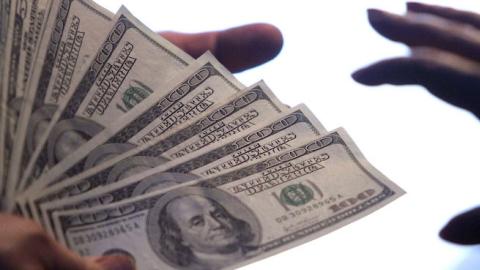The economic recovery is barely worthy of the name, and there is evidence that inequality in America is increasing. Ignoring the first rule of statistics—correlation is not causation—progressives see this as a new reason to expand government. Reduce inequality and the growth rate will increase.
But there is more assertion than fact in the claim that increased inequality results in slower growth. Some studies suggest that to be the case, others point out that so many factors determine an economy’s growth rate that heeding the call of the redistributionists will not add much to the flagging growth of our economy.
Still, respectable economists at the International Monetary Fund, famous for the speed with which they revise their forecasts, and the Organisation for Economic Co-operation and Development say significant income redistribution is needed if advanced economies are to grow faster. These practitioners of the dismal science are joined by our homegrown left-leaning economists—when they are not busy criticizing these very same organizations for backing the growth-devastating austerity Krugman & Co. contend has turned bad to worse in Greece.
All of this has morphed into criticism of the American economic model. Years ago it was Mussolini who made the trains run on time, then communism that would spread prosperity to the masses by sending capitalists north, then National Socialism that had the answer to a worldwide recession (rearmament). More recently we’ve heard hosannas to the centrally directed Chinese model, which now seems threatened by its internal contradictions. Now it is any system that is less unequal than ours, although beware of comparative data: The gap between Vladimir Putin’s reported income and that of a Moscow store clerk is probably less than the gap between a successful investment banker and a New York sales clerk. And if it turns out that reducing inequality can’t be defended as a growth enhancer, well, it surely can on grounds of fairness.
Not “surely.” If we are indeed engaged in a search for the economic system that looks in the mirror and declares itself the fairest of all, as President Obama believes he sees in the European democratic socialism model, it is not the income distribution figures that should be our guide. Most advanced economies do well by those on the top of the heap. The rich will always be with us, to borrow from Matthew, unless it was Mark. The place to look for which is the fairest is at the bottom: In which economic system is the living standard of the poorest highest? In America, some 50 million people live below the official poverty line, but that measure does not include food stamps, rent subsidies and entitlements, and other income transfers that supplement their wages. As scholar after scholar has pointed out, although being poor is not as much fun as being rich, and being poor can involve considerable hardship, the typical household living at 125 percent of the official poverty line or below owns a car, lives in an air-conditioned house, has cable or satellite service, a refrigerator, a microwave, and those with children have a game system. And 84 percent have two or three color television sets according to the Energy Information Administration. The average poor American has more living space than the average European.
So before attacking inequality by raising taxes on the rich and hiking the minimum wage, think of the word used by the great William Buckley: “stop.” Stop taking cash out of the paychecks of the poor and middle class to subsidize $85,000 electric cars for Hollywood celebrities; stop raising the energy bills of the poor and of struggling workers by forcing them to buy wind-produced energy instead of cheaper coal- and natural-gas-based energy; stop making it difficult for poor and even not-so-poor farmers to make a living so that little fish can swim around unimpeded; stop the government monopoly from fleecing middle-class taxpayers to support students who don’t want to repay their loans; stop taxing Joe the plumber for gasoline he buys to get to work so that richer cyclists have still more bike lanes in which to amuse themselves. There’s more, but you get the idea. I hope this bit of hyperbole helps to focus the debate.




















